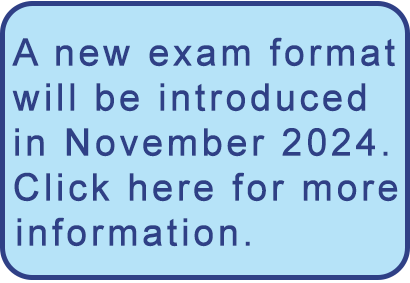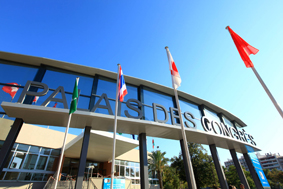Part B Candidate Feedback from November 2023 exam is accessible HERE
NEXT Part B Exam Dates for 2024 (Virtual exam)
14 to 16 June 2024
15 to 16 November 2024 - A new exam format will be introduced soon; find more details below.
application dates & deadlines for 2024
Part B - June Part B - November
|
15 March to 15 April
|
15 August to 15 September
|

|
|
Limited spaces available which will be filled on a first-come, first-served basis.
|
exam objectives
Part B assesses the clinical skills, behaviours and knowledge required for independent practice in adults and children, including pre-hospital care as described in the curriculum. Any presentation or diagnosis that is referenced in the curriculum may be included in the examination material. This part of the examination presents scenarios to the candidate, who is expected to manage the scenarios. The scenarios encompass a range of situations, including:
- Leadership of resuscitation
- Direct clinical evaluation of patients
- Discussion of difficult situations with simulated patients, relatives, and staff
- Interpretation of clinical data and discussion of management plans by structured oral questioning
- Demonstration of clinical skills
- Education and training of others around clinical situations
The exam consists of 4 structured clinical (OSCE) stations and 4 structured oral (viva) stations. They will last 10 minutes each, and you will have 5 minutes in between for reading instructions. There are also 2 rest stations. Some candidates will begin or end on a rest station.
Each station or scenario is judged independently and candidates are expected to pass at least 6 out of 8 scenarios. There is a minimum of two examiners present at each station.
Completion: Candidates who pass both parts of the exam will be invited to attend the Awards Ceremony at EUSEM'S annual European Congress on Emergency Medicine. The highest scoring candidates will receive special recognition.
|
Part B exam format: starting from November, the exam will be conducted only through oral examinations (SOEs). More details can be found in the "Format and Structure" section.
|
FORMAT AND STRUCTURE - JUNE 2024
Duration : 2.5hours
Remote participation: Part B is being held virtually. The exam can be taken from any private place with a good and stable internet connection.
Format : 8 exam stations of 15 minutes each (5minutes preparation / 10minutes examination), and 2 rest stations of 15 minutes each
- 4 Structured Oral Examinations (SOEs)
- 4 Structured Clinical Examination (SCEs)
- Candidates will rotate between the different stations, there is a minimum of two examiners present in each station
Completion: Each station or scenario is judged independently and candidates are expected to pass at least 6 out of 8 scenarios.
Candidates who pass both parts of the exam will be invited to attend the Awards Ceremony at EUSEM'S annual European Congress on Emergency Medicine. The highest scoring candidates will receive special recognition.
Candidates are allowed a maximum of six (6) attempts in total for each part of the exam.
The Part B exam should be completed within 4 years of successful Part A completion.
WHAT CHANGES IN NOVEMBER 2024 ?
Duration: 2 hours
Format : 6 exam stations of 20 minutes each (5minutes preparation / 15minutes examination)
- 6 Structured Oral Examinations (SOEs)
- No more Structured Clinical Examination (SCEs)
Completion : candidates are expected to pass at least 5 out of 6 scenarios.
WHAT DOESN’T CHANGE IN NOVEMBER 2024 ?
Remote participation: Part B is being held virtually. The exam can be taken from any private place with a good and stable internet connection.
Completion: Each station or scenario is judged independently. Candidates who pass both parts of the exam will be invited to attend the Awards Ceremony at EUSEM'S annual European Congress on Emergency Medicine. The highest scoring candidates will receive special recognition.
Candidates are allowed a maximum of six (6) attempts in total for each part of the exam.
The Part B exam should be completed within 4 years of successful Part A completion.
FEES
- Pre-registration fee : €100 (non-refundable administrative fee)
- Exam fees : detailed on the fees’ page (discount available for members)
EUSEM membership discount is only applicable if it was purchased before exam registration. No refunds will be made if membership has been purchased later.
How to APPLY
Before starting your application, be sure that you've read the eligibility criteria, regulations and terms and conditions and preparation guidance and code of conduct.
Step 1 to 4 must be completed before the application deadline, 15 April 2024.
Important: limited seats available, spots will be fill-in on a first come first served basis.
- Step 1: Connect to your MyEUSEM, using the same account as for Part A
- Step 2: Click on the “Apply” button at the top of this page
- Step 3: Fill in the requested information and pay the 100€ pre-registration fees (non-refundable administrative fee).
- Step 4: Once you’ve paid the 100€ admin fee, you will receive a confirmation email in which you will find a link to submit the following documents.
- Result of Part A
- Copy of passport
- CV in English
- Current medical licence to practice by National governing body (example: GMC, SCFHS…)
- Candidate supervisor form with months in EM, signed by supervisor/head of department/clinical lead/ head of training programme including EM Months (Evidence of having worked for at least 60 months full time in EM)*
- Copy of EM diploma or Evidence of enrolment with an EM training programme that includes: Country of EM training programme and Scheduled date of end of training
- Step 5: Your application will now be reviewed. If successful, you will receive a confirmation email by 29 April 2024 .
- Step 6: Pay the tuition fees. Details on the fees’ page
Resit candidates
Please use the same MyEUSEM profile you used at your previous exam registration.
If you have sat or registered to the Part B exam in the past 12 months you don’t need to re-submit all documents again just copy of medical license.


